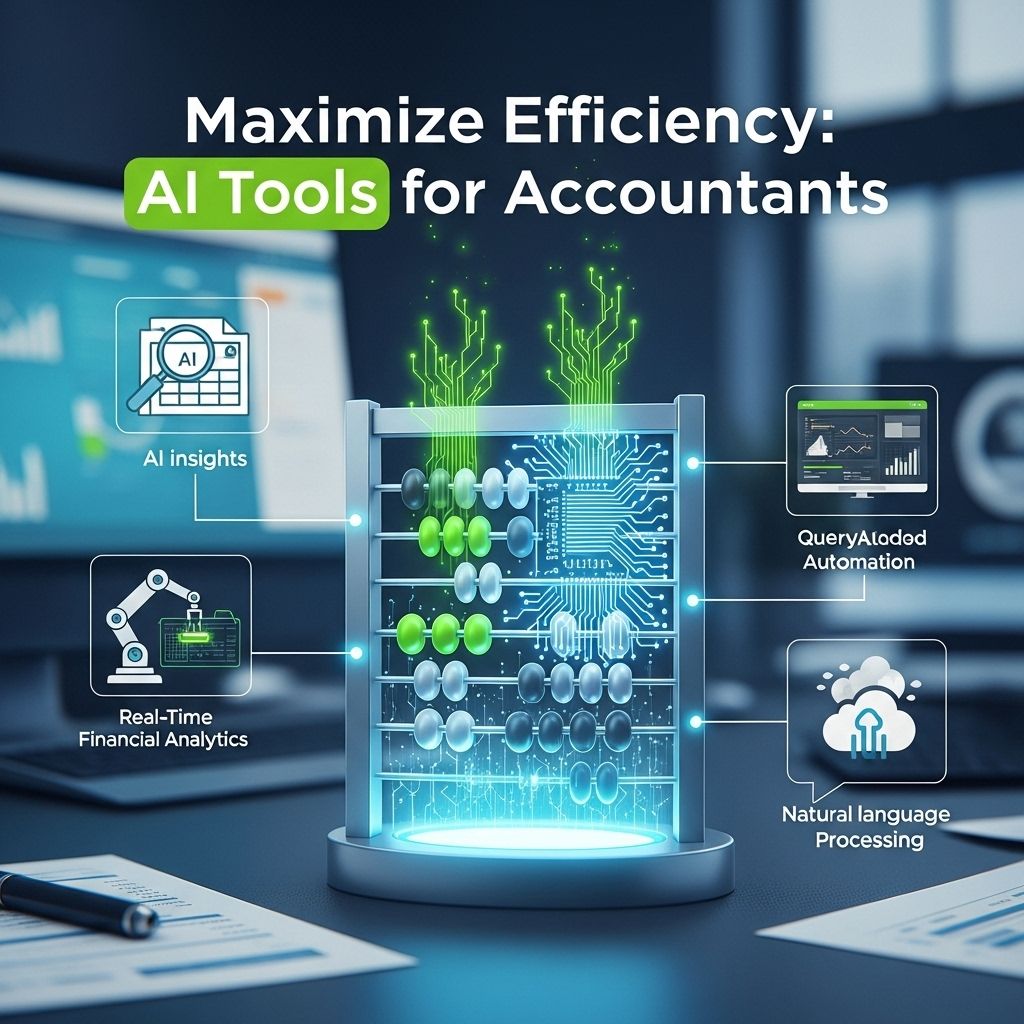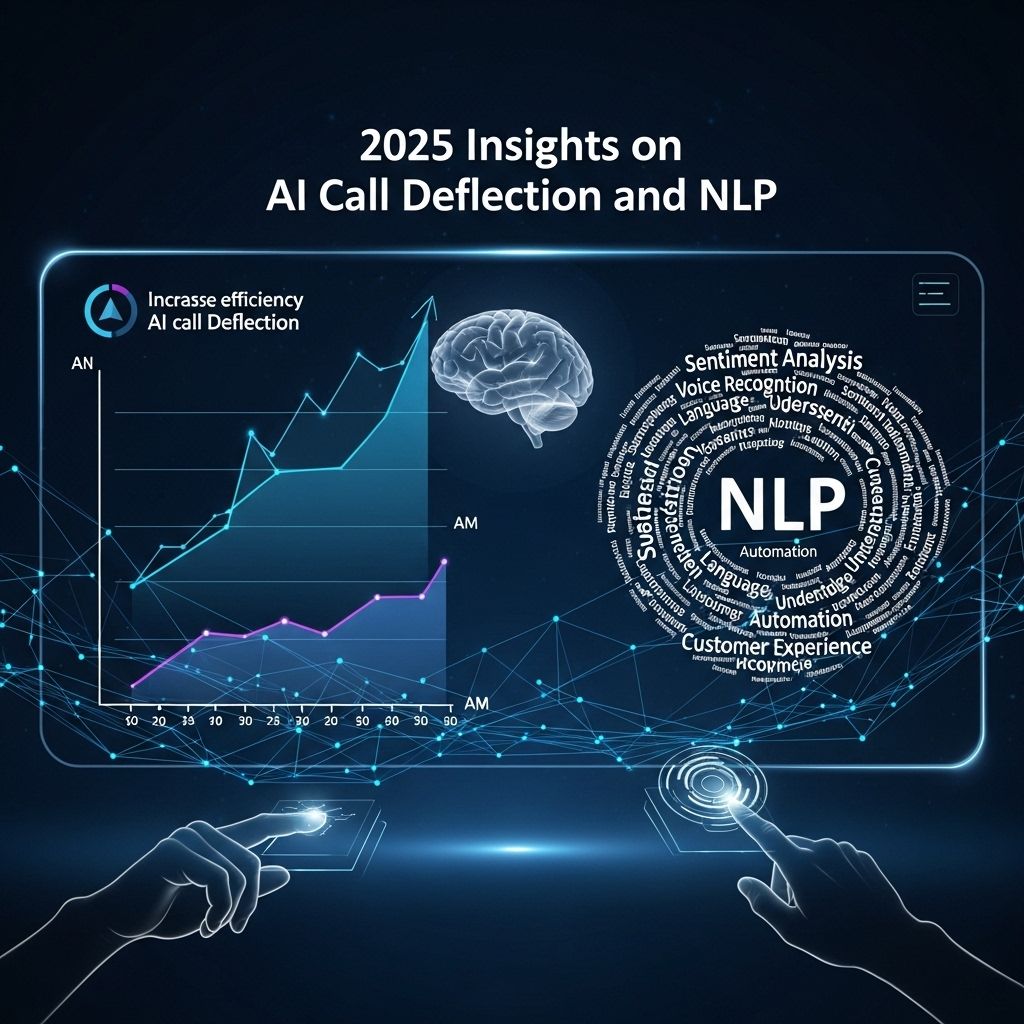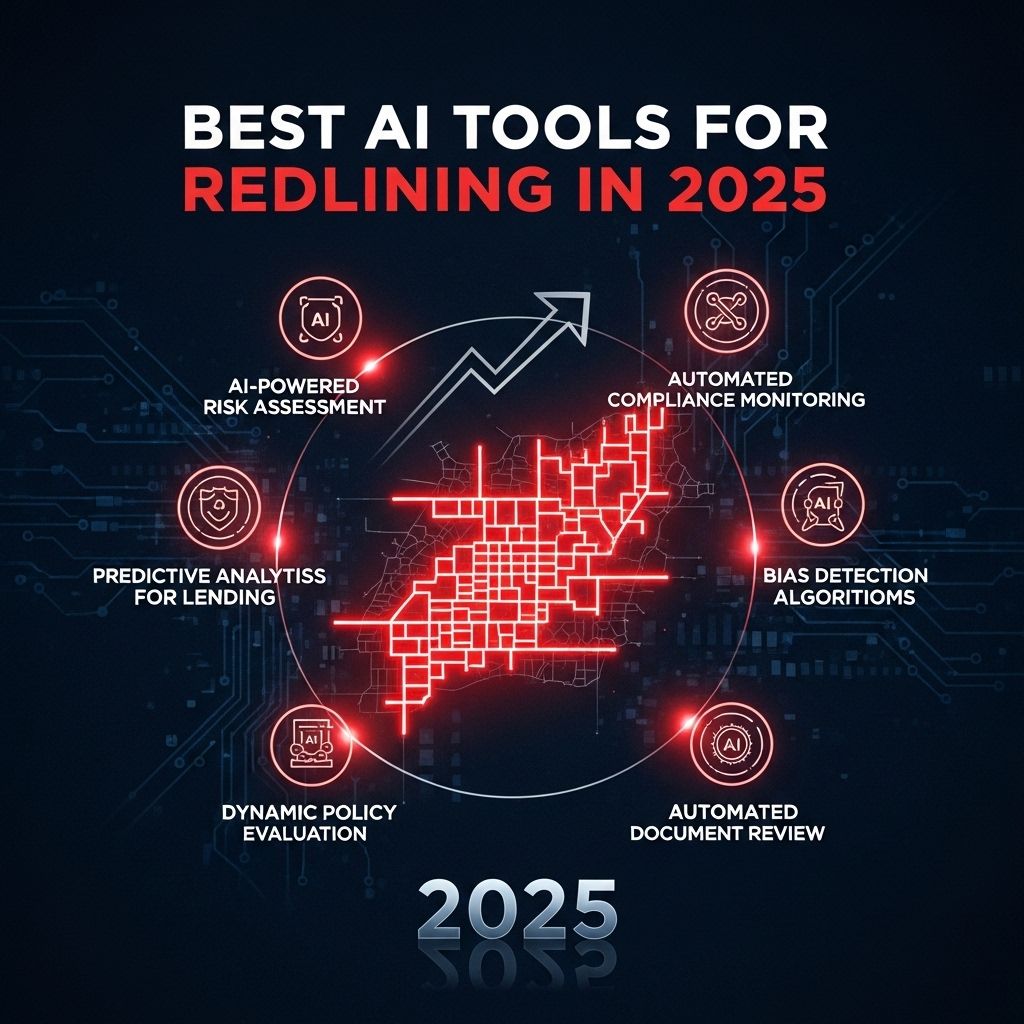Maximize Efficiency with AI Tools for Accountants
Discover the top AI tools that can enhance efficiency and accuracy for accountants, streamlining workflows and improving productivity.

In the fast-paced world of accounting, efficiency is paramount. The rise of artificial intelligence (AI) has transformed how accountants work, streamlining processes and reducing the time spent on mundane tasks. This article explores a range of AI tools designed to enhance efficiency in accounting practices, allowing professionals to focus on strategic decision-making and value-added services.
Table of Contents
Understanding AI in Accounting
AI technologies apply machine learning, data analytics, and automation to traditional accounting processes. These advancements enable accountants to process large volumes of data quickly, identify patterns, and even predict future trends. Here’s how AI is changing the landscape:
- Automation of Repetitive Tasks: AI automates tasks like data entry and invoice processing, allowing accountants to devote their time to more critical activities.
- Enhanced Data Analysis: AI tools can analyze large datasets faster and more accurately than humans, providing valuable insights.
- Real-time Reporting: With AI, accountants can generate reports in real-time, making it easier to track financial performance.
The Role of Machine Learning
Machine learning, a subset of AI, involves training algorithms to recognize patterns in data. In accounting, it can be used for:
- Fraud Detection: Machine learning algorithms can identify unusual transactions that may indicate fraudulent activity.
- Predictive Analytics: By analyzing historical data, machine learning can help predict future cash flows and financial trends.
- Risk Assessment: AI can assess various risk factors and provide insights into potential financial pitfalls.
Popular AI Tools for Accountants
Here are some of the leading AI-powered tools that are reshaping the accounting profession:
1. QuickBooks
QuickBooks is a widely used accounting software that integrates AI features to automate routine tasks.
- Automated Invoicing: Generates invoices automatically based on user inputs.
- Smart Categorization: Instantly categorizes expenses using machine learning.
2. Xero
Xero offers AI-driven insights and reporting capabilities, helping accountants make data-driven decisions.
- Bank Reconciliation: Uses AI to reconcile bank transactions automatically.
- Expense Management: Simplifies expense tracking through machine learning algorithms.
3. Sage Intacct
Sage Intacct focuses on financial management with a strong emphasis on AI analytics.
- Real-time Financial Reporting: Provides dashboards with AI insights for timely decision-making.
- Multi-dimensional Analysis: Allows for detailed analysis of financial data across different dimensions.
4. Botkeeper
Botkeeper combines human expertise with AI technology for bookkeeping tasks.
- Continuous Learning: The system learns from human interactions to improve accuracy over time.
- Automated Data Entry: Reduces manual data entry, saving significant time.
Benefits of Using AI Tools
The integration of AI tools in accounting practices offers numerous advantages:
| Benefit | Description |
|---|---|
| Increased Accuracy | AI algorithms reduce human error in data processing. |
| Cost Savings | Automation leads to lower labor costs and increased productivity. |
| Enhanced Insights | AI provides deep insights that help in strategic planning. |
| Scalability | AI tools can easily scale to accommodate growing business needs. |
Challenges and Considerations
While the benefits of AI tools in accounting are significant, there are challenges to consider:
Data Security
The use of AI tools involves handling sensitive financial information, making data security a priority. Accountants must ensure that the tools comply with data protection regulations.
Integration with Existing Systems
Integrating AI tools with traditional accounting systems can be complex. Accountants should choose tools that offer easy integration without disrupting ongoing operations.
Skill Development
Accountants may need to upskill to effectively use AI tools, ensuring they can leverage technology to its fullest potential.
Conclusion
The advent of AI in accounting is paving the way for a more efficient and insightful practice. By leveraging AI tools, accountants can enhance their efficiency, reduce errors, and provide more strategic value to their clients. As the technology continues to evolve, staying informed about the latest tools and trends will be crucial for accountants looking to thrive in the digital age.
FAQ
What are the best AI tools for accountants?
Some of the best AI tools for accountants include QuickBooks, Xero, and Avalara, which help automate bookkeeping, tax calculations, and compliance.
How can AI improve accounting processes?
AI can improve accounting processes by automating repetitive tasks, enhancing data accuracy, providing real-time insights, and streamlining report generation.
Is AI in accounting cost-effective?
Yes, AI in accounting can be cost-effective as it reduces the time spent on manual tasks, minimizes errors, and allows accountants to focus on strategic decision-making.
What features should I look for in accounting AI software?
Look for features such as automated data entry, predictive analytics, integration capabilities, compliance tracking, and user-friendly interfaces.
Can AI tools help with tax preparation?
Absolutely, AI tools can assist with tax preparation by analyzing financial data, identifying deductions, and ensuring compliance with tax regulations.
Are AI tools secure for handling financial data?
Most reputable AI tools use advanced encryption and security protocols to protect financial data, but it’s crucial to choose a trusted provider.








